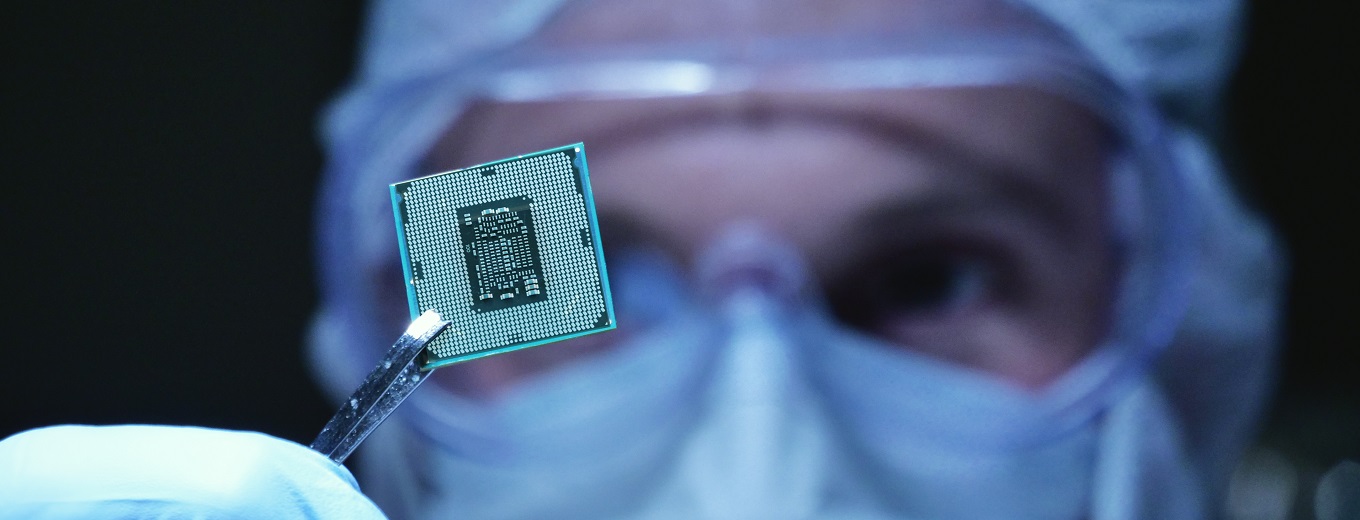The European Commission has approved a large transnational initiative funding industrial technology research, dedicating over €8 billion to microelectronics.
As part of the European Union (EU) effort to achieve a greener, digital, more secure, resilient and sovereign economy, the European Commission (EC) has approved a second Important Project of Common European Interest (IPCEI) in microelectronics. The EC assessment under the state aid rules will allow participating EU Member States to provide up to €8.1 billion in public funding to support research, innovation and the first industrial deployment of microelectronics and communication technologies across the value chain from materials and tools to the chip designs and manufacturing processes. As part of this IPCEI, 56 companies, including small and medium-sized enterprises (SMEs) and start-ups, will undertake 68 projects. The project, called ‘IPCEI ME/CT’, was jointly prepared and notified by fourteen Member States: Austria, Czechia, Finland, France, Germany, Greece, Ireland, Italy, Malta, the Netherlands, Poland, Romania, Slovakia and Spain.
These 68 projects will support Europe’s digital and green transformation by: (i) creating innovative microelectronics and communication solutions, and (ii) developing energy-efficient and resource-saving electronics systems and manufacturing methods. They will contribute to the technological advancement of many sectors, including communications (5G and 6G), autonomous driving, artificial intelligence and quantum computing. They will also support companies active in the energy generation, distribution and use in their green transition. First novel products may be introduced to the market as early as 2025, and the completion of the overall project is planned for 2032, with timelines varying in function of the project and the companies involved. Around 8’700 direct jobs are expected to be created.
IPCEI ME/CT follows and complements the first IPCEI to support research and innovation in the field of microelectronics (with public sector funding of €1.75 billion), approved by the Commission in December 2018, which is due to finish its activities in 2024. It focused on energy-efficient chips, power semiconductors, smart sensors, advanced optical equipment, and compound materials for advanced chips.
Along with the European Chips Act, the IPCEI aims to enhance the EU’s chip R&D and manufacturing capabilities, consolidate supply chain security and stability, and augment its competitiveness globally. The EU aspires to account for 20% of global semiconductor production capacity by 2030. Achieving this goal hinges on state subsidies and pools of funds created by private investors for the construction of new semiconductor manufacturing facilities in Europe.
The IPCEI ME/CT constitutes the sixth such project approved under EU State aid rules, and is the largest in terms of funding and number of partners. It is third IPCEI approved on the basis of the 2021 IPCEI Communication, which sets out criteria under which several Member States can support transnational projects of strategic significance for the EU. In addition to the first IPCEI on microchips, there are two ongoing IPCEIs on battery technologies (public sector funding totalling €3.2 billion and €2.9 billion respectively), and two IPCEIs on hydrogen technologies (public sector contributing €5.4 billion and €5.2 billion respectively). In addition to the existing IPCEI projects, there is a further one in the pipeline on cloud technology. The EC is furthermore gauging the interest in further IPCEI projects on solar cells, health, low carbon industry and hydrogen.
The first three IPCEI projects were financed only with national funds, whereas the two IPCEI projects on hydrogen were also financed with funds from the EU’s Recovery and Resilience Facility (approx. €5.5 billion). For countries that do not have the necessary national resources to participate in IPCEI projects, it has provided an opportunity to participate. Many countries lack the resources, financial and other, to participate in multiple IPCEI, whereas larger member states, such as France, Germany and Italy, are participants in all the existing projects. Administratively, joining an IPCEI is a big burden for member states, and some smaller member states have expressed worries about the distorting effect on the single market caused by IPCEI’s as they currently are implemented, and about the overuse of the instrument in order to address the challenges facing European industry and society. A point of common agreement, however, is that the European processes for participation in IPCEI projects are too time-consuming and that the pace generally needs to pick up.

